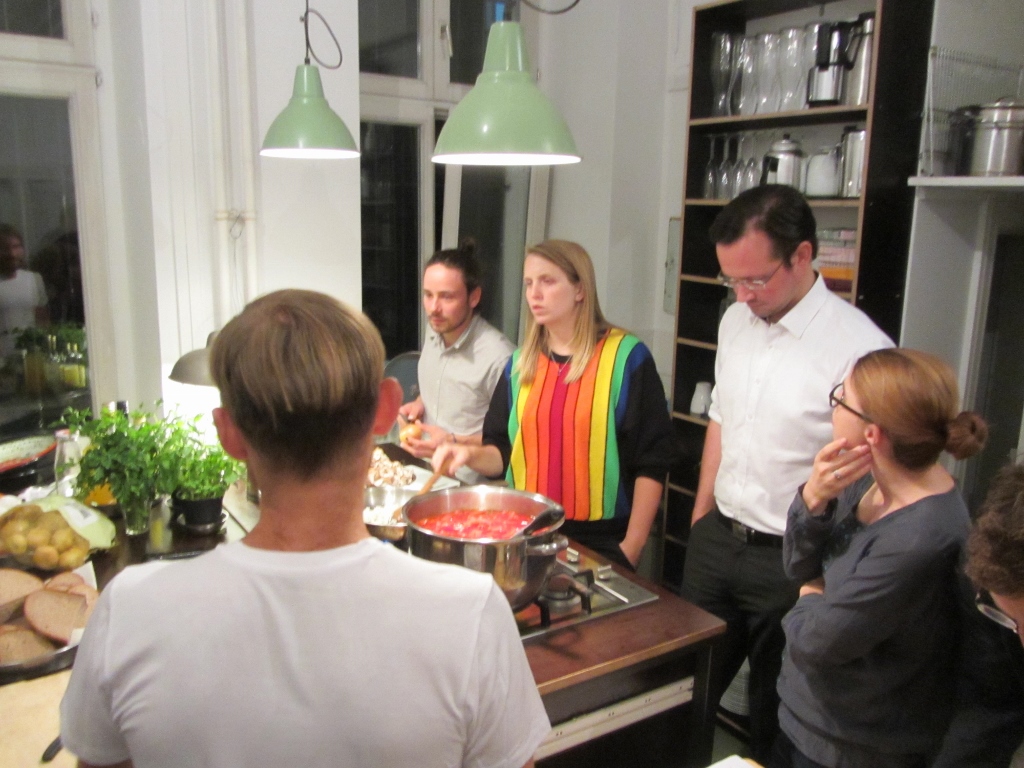Volunteers are at the heart of foraus. What can be done when this heartbeat gets irregular and struggles to pump the necessary blood to keep the grassroots think tank alive? In what way has technology helped to preserve voluntary engagement? Sounds interesting? Then read on.
A Comment by Wailea Zülch
Not a lot of imagination is needed: a house without a solid ground falls apart. As a bottom-up think tank, this ground for us are our volunteers, who create spaces for an informative dialogue on foreign policy and put their heart and soul into writing scientific-based policy recommendations. foraus volunteers are either students or young professionals who mostly do not belong to the COVID-19 risk group, but were nevertheless strongly affected by the pandemic. Reduced personal and social contact troubled many of us, as did the difficulty of finding a balance between work, private life and other engagements.
Adjusting to remote work took some time and it was difficult to maintain the same level of voluntary commitment at the same time. COVID-19 restrictions on events and meetings have required a lot of flexibility from volunteers. Even if some kind of new routine seems to have developed by now, many challenges remain, as the coming months, if not years, will most likely continue to be characterised by alternative event formats and online community management activities.
foraus was able to carry out a project on this issue thanks to the support of the Anny Klawa Morf Foundation, that allowed us to collect learnings from our members and other similar organisations. Although the impact of the pandemic on volunteering cannot be conclusively assessed at this stage, it is essential for many associations and stakeholders to obtain in-depth knowledge and practical solutions for voluntary engagement under COVID-19.
In October, over 60 foraus volunteers attended a workshop to share experiences and develop best practices on COVID-19 and volunteering. The key takeaways from this workshop are captured in this video. Later, in early December, an interactive exchange between representatives of different volunteer organisations took place to discuss these learnings and develop best practices for the upcoming months. Many exciting initiatives ranging from a COVID-support-helpline to a themed walk in nature as an alternative remote work routine were shared. However, as online events will be the new normal, technological solutions in particular were discussed in both workshops.
Make it short, spice it up and integrate your participants as much as possible!
Nowadays, volunteers are constantly faced with the question of identifying the right tool or platform to facilitate community meetings or public events. Stakeholders interacting with volunteers also need to find the right digital tool to be able to create a support structure in virtual reality. Therefore, it does not come as a surprise that the first challenge is mostly to find the right digital instrument for each specific audience and setting in this continuously growing jungle.
Many new tools (e.g. Klaxoon or Miro) allow for a more interactive experience, but if participants are no digital natives, common means (like group chats on Whatsapp or Skype) are sometimes the better option. Linked to the quite complex challenge of finding the appropriate tool is the question of the right format. foraus volunteers as well as representatives of other organisations highlighted the learning that it often pays off to test new innovative formats such as virtual pub quizzes, hackathons, sofa sessions etc. to fight the zoom-fatigue by actively involving attendants in smaller groups and more active formats.
New opportunities thanks to technology
Our Feminist Foreign Policy Policy Kitchen Challenge with workshops bringing together hundreds of people on five continents – including youth, civil society and top-level experts and policy makers – vividly demonstrated the potential inclusiveness of online events, as anyone interested from across the globe can join such a collective thinking exercise. As time windows are shorter and travel costs are eliminated, it also became easier to win high-level experts for exciting inputs, which in turn attracted a higher number of participants.
However, this does not mean that online events are simpler to organise. An inspiring virtual meeting needs an excellent preparation and several well prepared facilitators with clearly defined roles and responsibilities. Different volunteer organisations pointed out that webinars and training in facilitating online events are helpful – and sustainable – in enabling volunteers to use their limited time resources in an impactful manner.
Looking back, challenges have been tackled and many lessons are learned. In these times of COVID-19, we have seen how crucial it is to provide room for sharing experiences – also, and especially, in fast-paced think tanks – and if this cannot be organised in person, digital spaces are essential. Technology has been vital to keep grassroots volunteering going. And with meetings in person still being restricted, we should try to focus on the upside of the virtual realm. More inclusive (digital) space can create a blossoming bouquet of perspectives – and that gets us further on many issues.
The Polis Blog serves as a platform at the disposal of Polis180’s & OpenTTN’s members. Published comments express solely the authors’ opinions and shall not be confounded with the opinions of the editors or of Polis180.
Image via foraus

Wailea works as Engagement Manager at foraus, the Swiss Think Tank on foreign affairs. Committed to building bridges between volunteers and their many innovative projects, she uses Policy Kitchen as a key tool and method to maximise the potential for synergies. As part of the Policy Kitchen team, she also looks after cross-linguistic innovation campaigns. Her multidisciplinary studies in France, Switzerland and the Netherlands (MSc Political Science; European External Relations) and her diverse work experiences have enabled her to combine and communicate insights from different disciplines.
